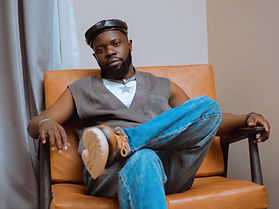Heading 3
Heading 2
Heading 2
Heading 2

Museveni signs new law allowing military trials for civilians in Uganda. Critics call it a tool to silence opposition. Bobi Wine vows to resist.
November 2, 2024 at 3:07:13 PM
Modified:
Published:
November 2, 2024 at 3:07:13 PM
Uganda’s President Yoweri Museveni has signed a new law that brings civilians back under military court trials, despite a recent Supreme Court ruling calling the practice unconstitutional.
The move has sparked fresh outrage from the opposition and human rights groups, who say this is just another tool to silence government critics.
In January, Uganda’s Supreme Court ruled that civilians should not be tried in military courts. Judges said these courts were not neutral or legally qualified to handle such cases.
But now, a new amendment passed by Parliament, under heavy police presence and boycotted by the opposition, brings those trials back.
This time, the law claims that military court judges must have legal training and act independently. Still, civilians can face trial if found with weapons, uniforms, or other military items.
“The law will deal decisively with armed violent criminals... and deter militant political groups,” said army spokesperson Col Chris Magezi on X. “If it ain't broke, don’t fix it!”
But opposition leader Bobi Wine says the law targets people like him:
“All of us in the opposition are being targeted by the act,” he told AFP.
Uganda Law Society Plans to Challenge It
The Uganda Law Society said it will fight the law’s constitutionality, arguing it violates the earlier Supreme Court decision.
For years, activists said the military courts were abused to jail political enemies.
“If you’re a political opponent, they’ll find a way to get you into the military court… then your fate is sealed,” said human rights lawyer Gawaya Tegulle.
He said victims can wait years in detention while military bosses delay decisions, and punishments are often much harsher than civilian courts.
In one major case, veteran opposition leader Kizza Besigye was arrested in Kenya and secretly brought back to Uganda. He was charged in a military court for allegedly trying to buy guns, charges he denied.
After the Supreme Court ruling, the case was moved to a civilian court, and the charges were changed.
Museveni Stands His Ground
Museveni, in power since 1986, wasn’t happy with the judges’ ruling.
“The country is not governed by the judges. It is governed by the people,” he said.
He defended military courts as faster and more effective:
“Civilian courts are too busy to handle gun-wielding criminals quickly.”
What’s Next?
Rights groups warn this amendment will reopen the door to political abuse. The legal battle now moves to courtrooms and the streets.
Keep Reading






